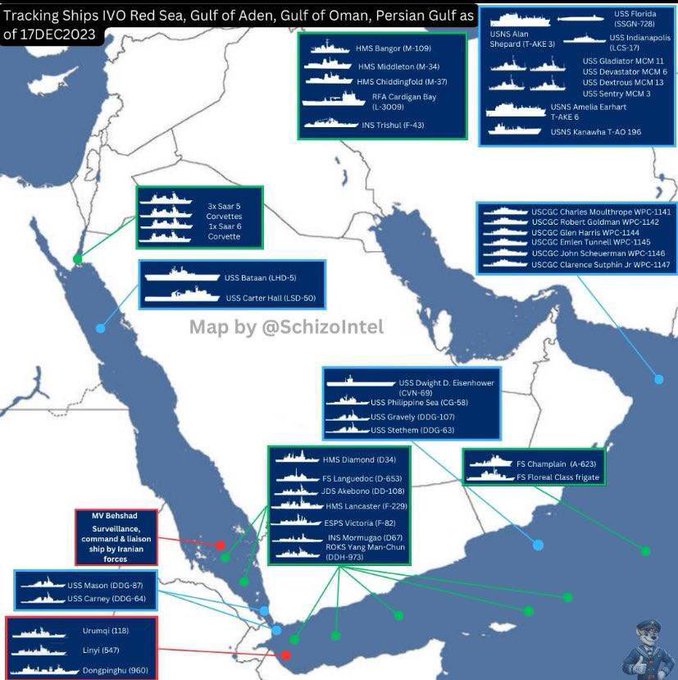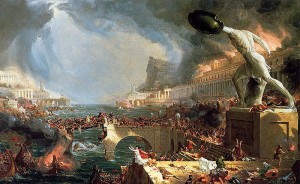This is the fourth chapter of my book “The Construction of Reality.” It is about what makes us human. Construction of Reality is about really fundamental principles and is somewhat dry (it’ll get a rewrite), but the fundamentals are worth learning.
It’s first draft, so not completely edited, and is a reward for reaching a milestone in our fundraiser. The next milestone is $8,350 (a little over $800 from our current total), and will include chapters:
5. Identity and Identification (how we expand our bodies beyond our physical selves)
6. The Ritual (how we create identification)
7. Interaction ritual (how daily life creates identification and personality)
We learn to be human from other humans. Identity, ideology, language, empathy and role taking all require other humans initiate us.
Once we have learned to be human we can be humans alone. There is a long tradition of hermits, men and women who go into the wilderness for years at a time to seek themselves, God, or another way of understanding reality. But before they could escape from humanity to find out what being human means, they first became human by the example and work of others.
Still, each of us exists for ourselves, with an internal experience which is known completely only to ourselves. It is not entirely unknown to others, we are able to feel the pain and pleasure of other people, but it is never quite the same as our own pain or pleasure.
We may guess at other people’s thoughts, but we do not hear them. We become human thru other people, yet never completely know them. This is appropriate, because as many hermits would tell us, we don’t know ourselves very well either, for all that we have access to our own experience.
Humans have bodies and those bodies give rise to drives and needs and near universal emotions. If we wish to continue living we need food and water and to be neither too hot nor too cold. We must avoid injury, but live by harming or killing other living creatures: plants and, usually, animals.
Most people want sex, they want recognition, they want to feel safe and they want to feel accepted.
A psychologist named Maslow created a famous pyramid of needs, positing that we worked our way up the pyramid. Maslow said we had physiological needs like food and water, then safety needs, then love and belonging needs, then esteem needs (feeling good about ourselves), then a need for self-actualization.
Maslow was on to something, but the needs aren’t entirely a pyramid, except that one needs to meet physiological needs to keep living. Different people, different subcultures and different cultures value different needs.
Like those hermits, who put self-actualization above all other needs and drives except staying alive. They live on almost nothing and see no other people. To them, self-actualization is more important than anything else, and one can even find accounts of Indian renunciates (Saddhu) killing themselves.
Kamikazi pilots gave up their lives for their community. Samurai would commit suicide rather than face dishonor. Monks, the communal version of hermits, often gave up sex and followed ideologies like Christianity which told them they were innately sinful, bad people. In fact, Christianity, one of the main world religions, has as a primary tenet that we are all sinful.
There are those who make food their lives, like chefs and gourmands and indeed many families where food and eating are the most important activities each day. There are those who despise food, eating only as much as they must.
American Plains Indians would fast from food and water for 3 days during the Sun Dance while inflicting pain on themselves by, say, threading rawhide through their nipples.
Maslow’s hierarchy isn’t a bad generalization, but it is a generalization. Humans are different, and very plastic: even the need to stay alive can be trumped by other concerns.
One a Saint, another a Gourmand, a third a soldier, a fourth a brigand, a fifth a faceless bureaucrat.
All human.
Why can humans be so different? When are humans very different from each other?
Why?
The Three Piece Experience Model
Human experience has three pieces. Sense events. Attention. Interpretation.
Events are happening all the time. Some demand our attention, like putting your hand on a red hot element. Others are less determined—a hundred cars on the street, pedestrians, the music playing at the outdoor cafe, billboards above.
Sense events are what is happening around us and to us. Attention determines which of those sense events we pay attention to. Interpretation is our judgment of them: good, bad, pleasurable, shameful, and so on.
Thoughts are sense events. We experience thoughts, we do not control them most of the time, and we interpret our thoughts. Those who doubt this are invited to start noting down what they will be thinking in 5 minutes and then see if they are. (X)
One person can think “gun” and feel warm, another scared. One person will think “sex” and be happy, another will feel shame. Thoughts carry connotations and the connotations are not the same for everyone.
The same is true of other events. There are people who enjoy pain, who seek it out. There are those who hardly feel it or don’t care, who in religious festivals, have themselves nailed to crosses or hung on hooks and tell everyone they are having a grand old time.
You and I may both eat a delicious chocolate cake and one of us may feel satiated and happy, while the other one feels shame and guilt.
Nothing is good or bad but thinking makes it so
– Shakespeare, Hamlet
Even thoughts are made good or bad by thinking, or rather, by interpretation.
Human experience is what happens, plus how we interpret it. That means the primary force in creating our world and ourselves: our personality and our identity, is conditioning.
Everyone is conditioned. Personality is a pattern of conditioning. We do not, as a rule, logically work out the pluses and minuses of our actions, we simply act, based on how we feel about possible actions. The more we have interpreted something as good, the more we want of it. The more we have interpreted it as bad, the less we want of it.
We can be conflicted: the chocolate cake tastes great, which we want, but we think it will make us fat, in which case we may believe no one will love us, we’ll be unhealthy, and good looking people won’t want to have sex with us.
That’s a lot of weight for a piece of cake.
We gain most of our interpretations from other people. We are thinking their thoughts: the parents who told us sex was bad; the priest who said God loves us and that we’ll burn eternally if we have gay sex; or the teacher who told us America is good and Russia is bad. Most of our thoughts didn’t start as our thoughts nor did most of our emotions, they were transmitted to us by other people, and we came to be believe they were ours.
Chocolate cake may be an intrinsic good, but all freight comes from other people. Children are told not to hit other children, to share their toys and so on. In some societies people are taught to compete as children, in others they are taught to cooperate. In some to be generous, in others to be greedy.
We are tall in comparison to others; we are smart or stupid in comparison to others. We are good at sports in comparison to others. We are handsome or ugly in comparison to others and in relation to our culture. Today women are judged beautiful if they are skinny, in the Victorian era fleshier women were considered beautiful. Traditional Japanese society associated breasts with children and didn’t find them sexy. Displaying teeth when smiling was seen as disgusting, it was considered “showing one’s bones”.
Who we are, our identity and our personality, is shaped by our environment, and most of our judgments about what is good or bad and who we are determined by other people, not ourselves.
This is not to deny biology. A tall man has a different experience of the world than a short woman. Personality is partially based on our individual bodies: parents often comment that babies acted differently from each other right out of the womb, far before environment could have changed us.
Still, humans are made by other humans and much of the outlines of identity and personality are created from the outside-in; from other people telling us or showing us how we should interpret the events of our lives.
Conditioning is not intrinsically bad, most decisions do not require analytical thinking, and most important decisions (run from that lion, sympathize with my friend) don’t allow time to think.
The most effective conditioning is conditioning we like. People who don’t like their conditioning try to change it, so conditioning we don’t like is less effective.
Still, conditioning is reflexive, largely unthinking and hard to change, as anyone who has tried to change their personality or habits knows. And mostly, we don’t choose our conditioning.
It comes from outside, and the most influential conditioning we receive is done when we are children and almost unable to resist. As adults, we may reject or seek out particular conditioning, but we judge it good or bad based on other conditioning.
There is no escape from the fact that our selves and our interpretation of our lives are mostly created by other people.
But we can learn something by looking at how people live and what they were like when they live in the way humans evolved for, rather than in our old, very artificial societies
SUBSCRIBE OR DONATE


